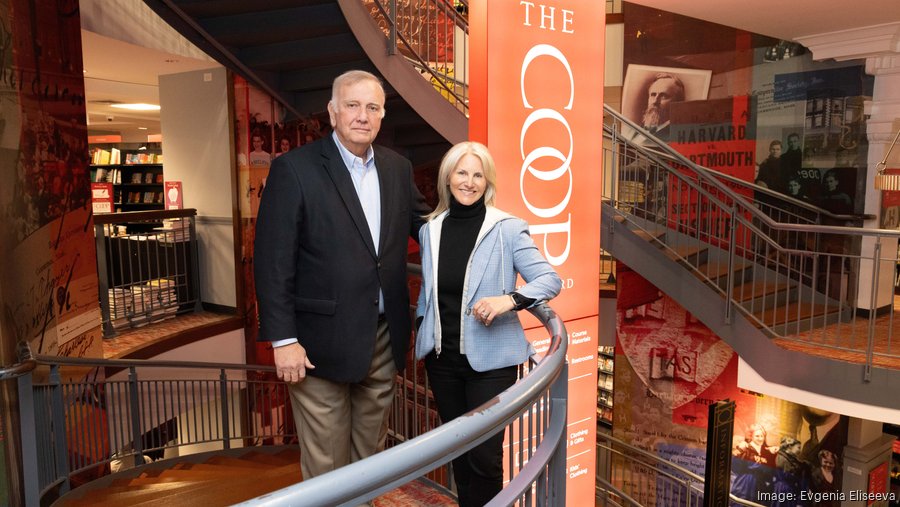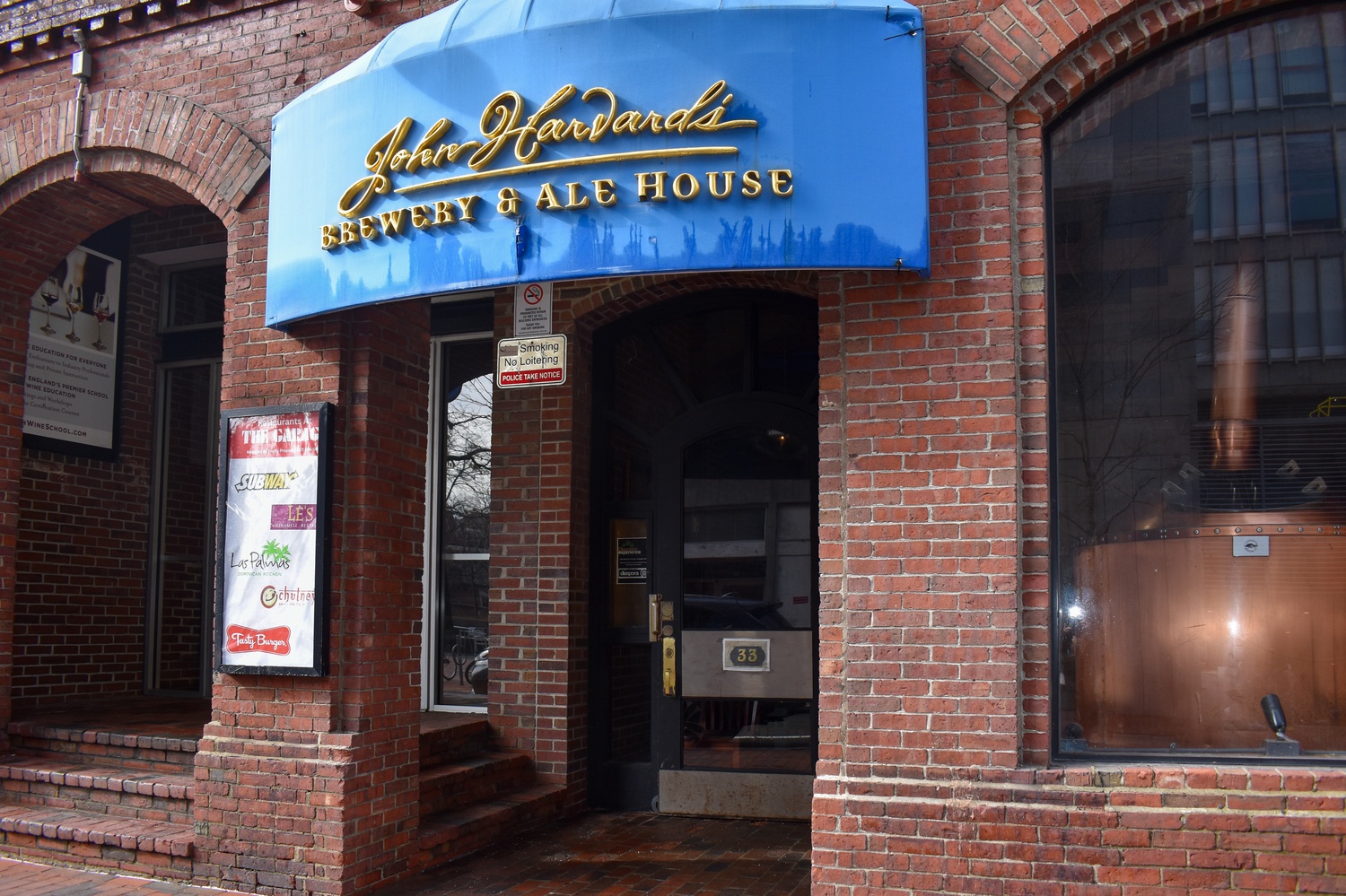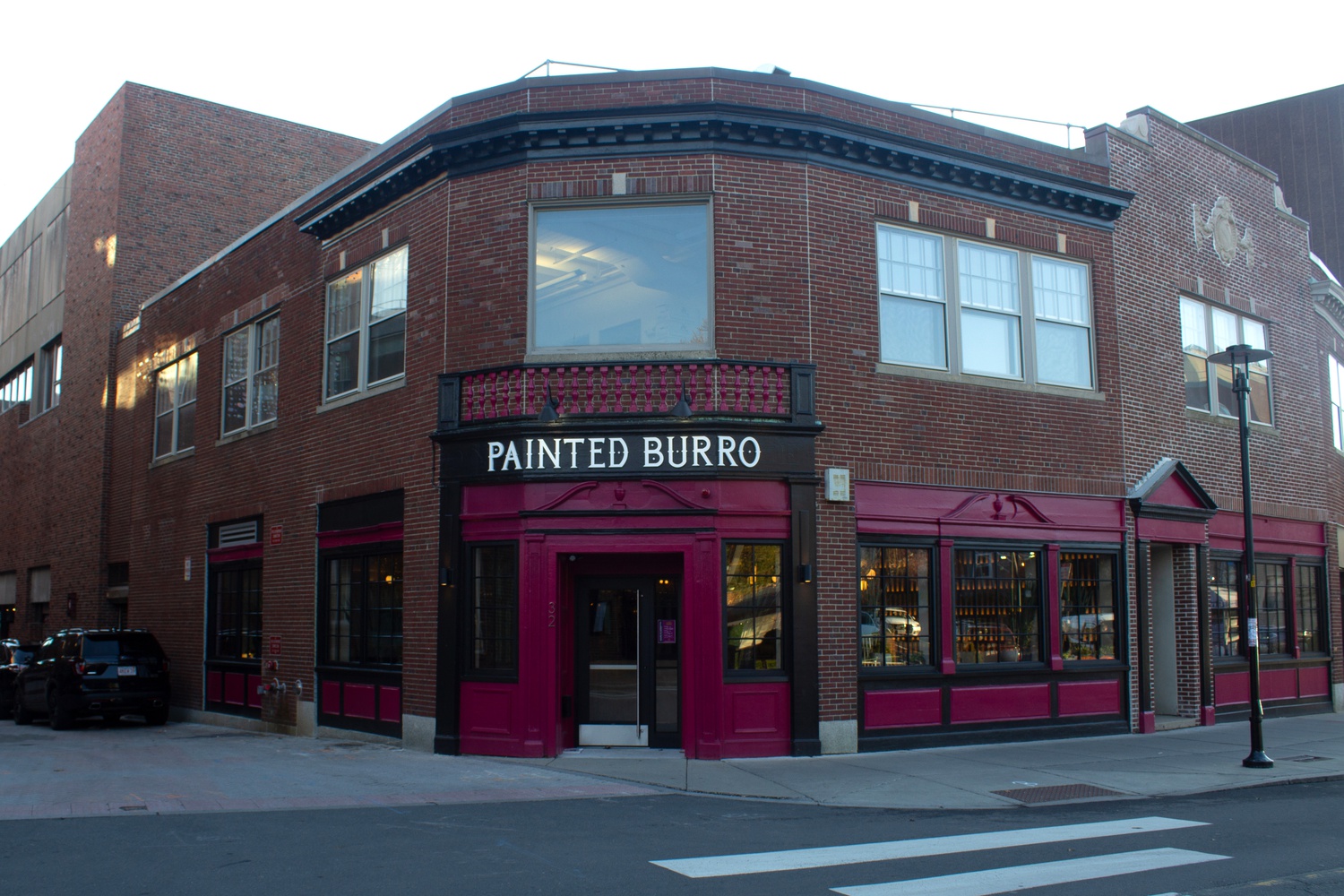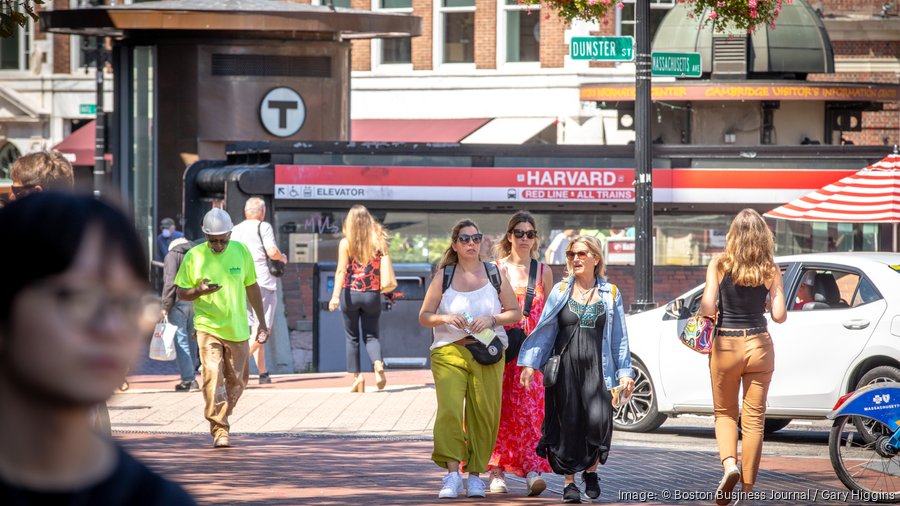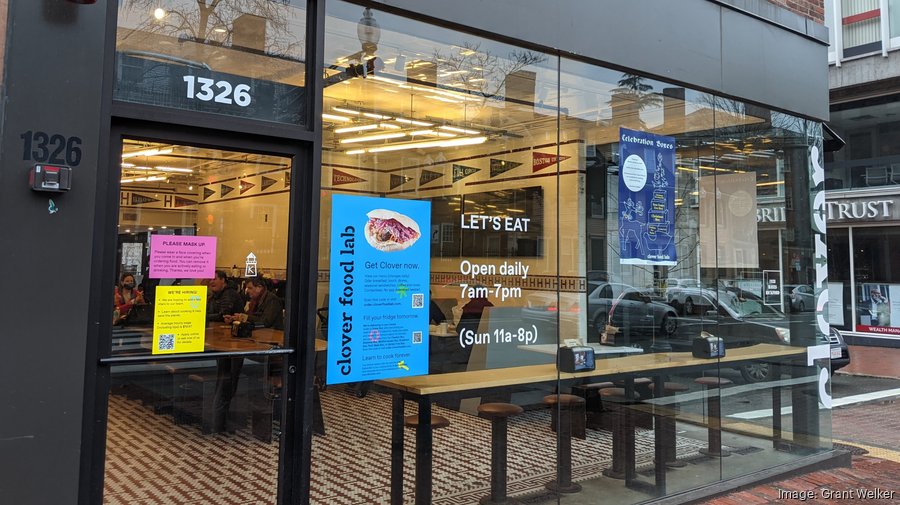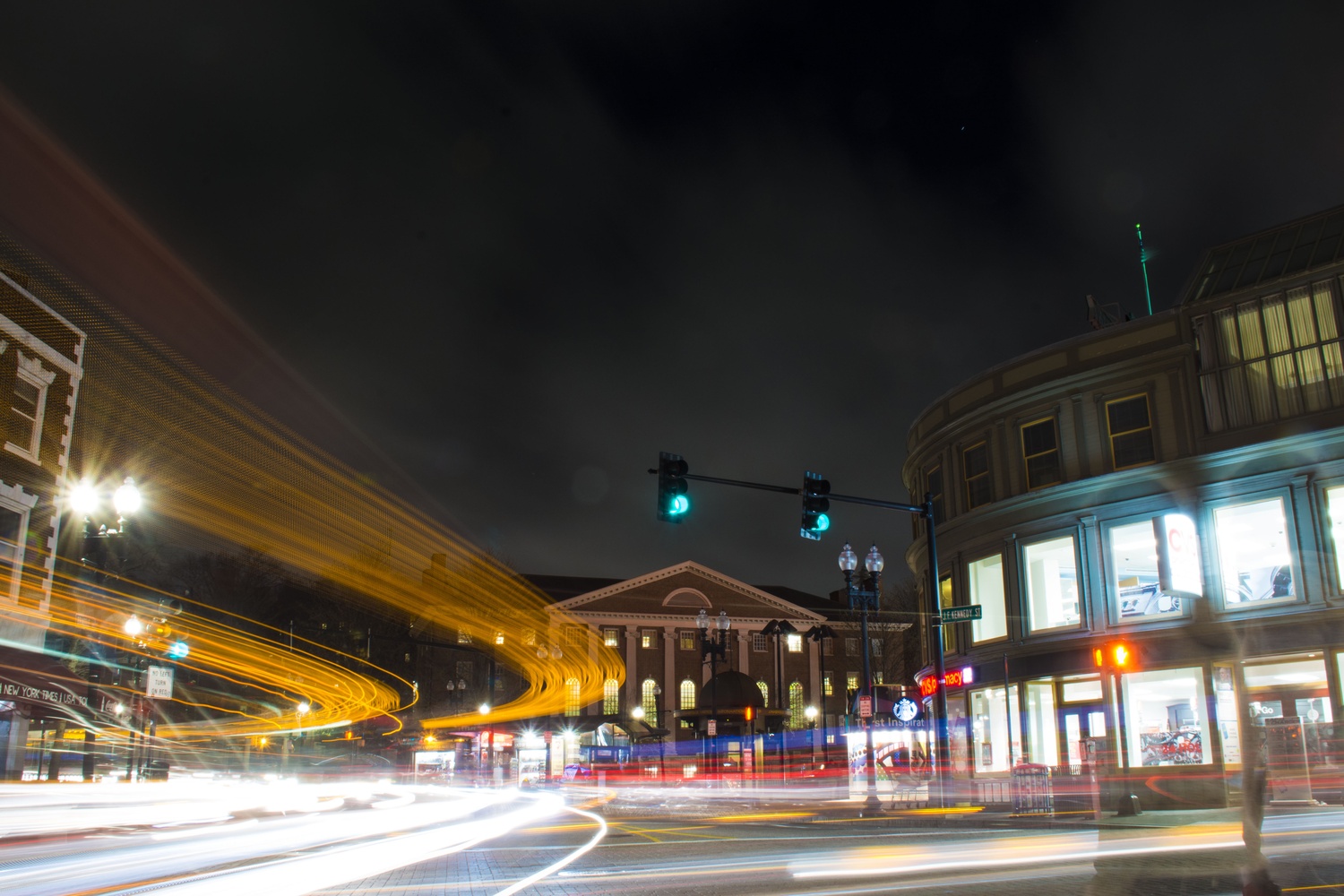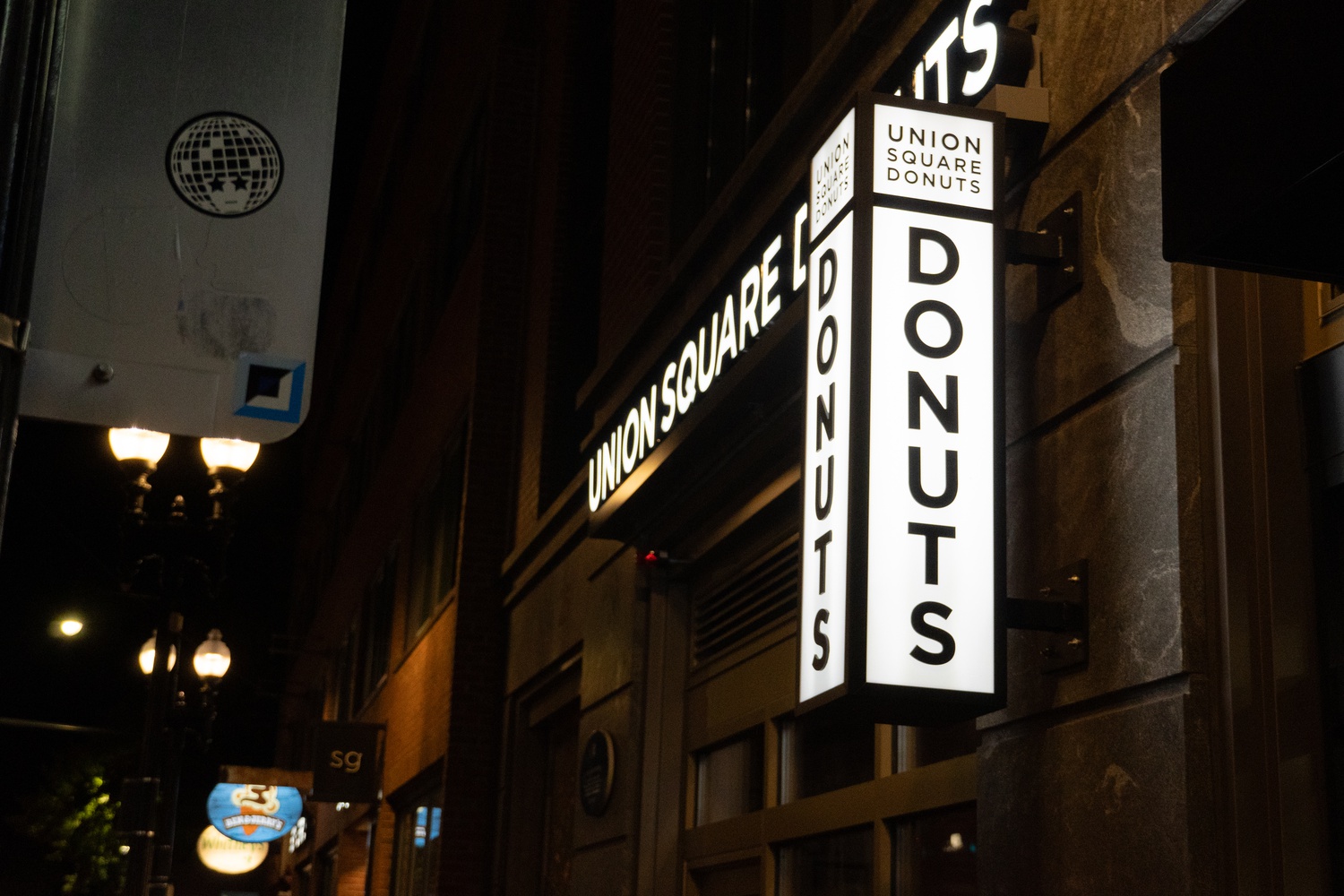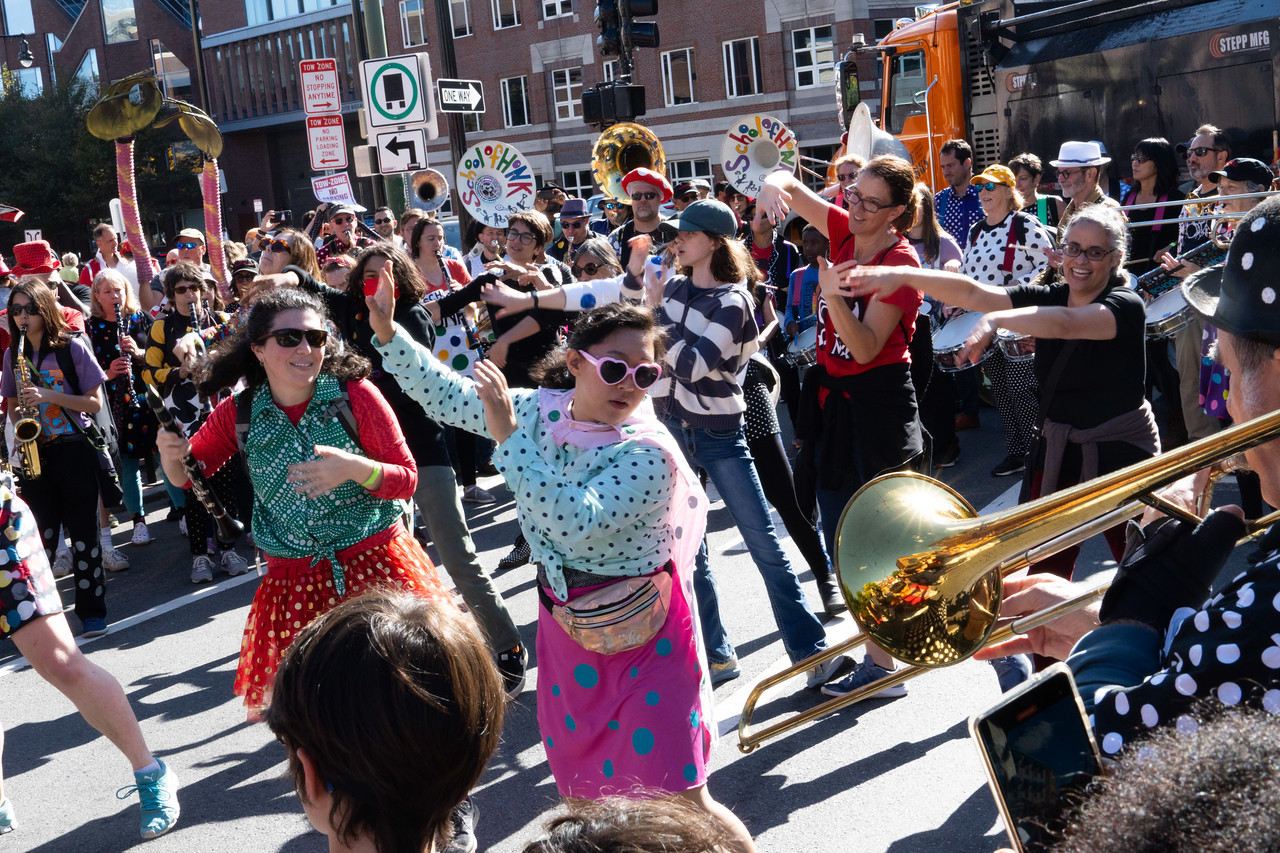Two manhole explosions on Brattle Street shut down traffic in Harvard Square amid undergraduate move-in Wednesday morning, according to the Cambridge Fire and Police departments.
No bystanders were reported injured, but a firefighter was hospitalized due to smoke inhalation.
The first explosion took place at 8:34 a.m. Wednesday just outside Bluestone Lane, a Harvard Square coffee shop at 27 Brattle St., sending up a plume of brownish-gray smoke. The fire department responded soon after, with police severely restricting access to the Square.
Shortly after the fire department arrived at the scene, a second manhole exploded, with flames coming out of both, Fire Chief Thomas F. Cahill Jr. said at a press conference Wednesday afternoon.
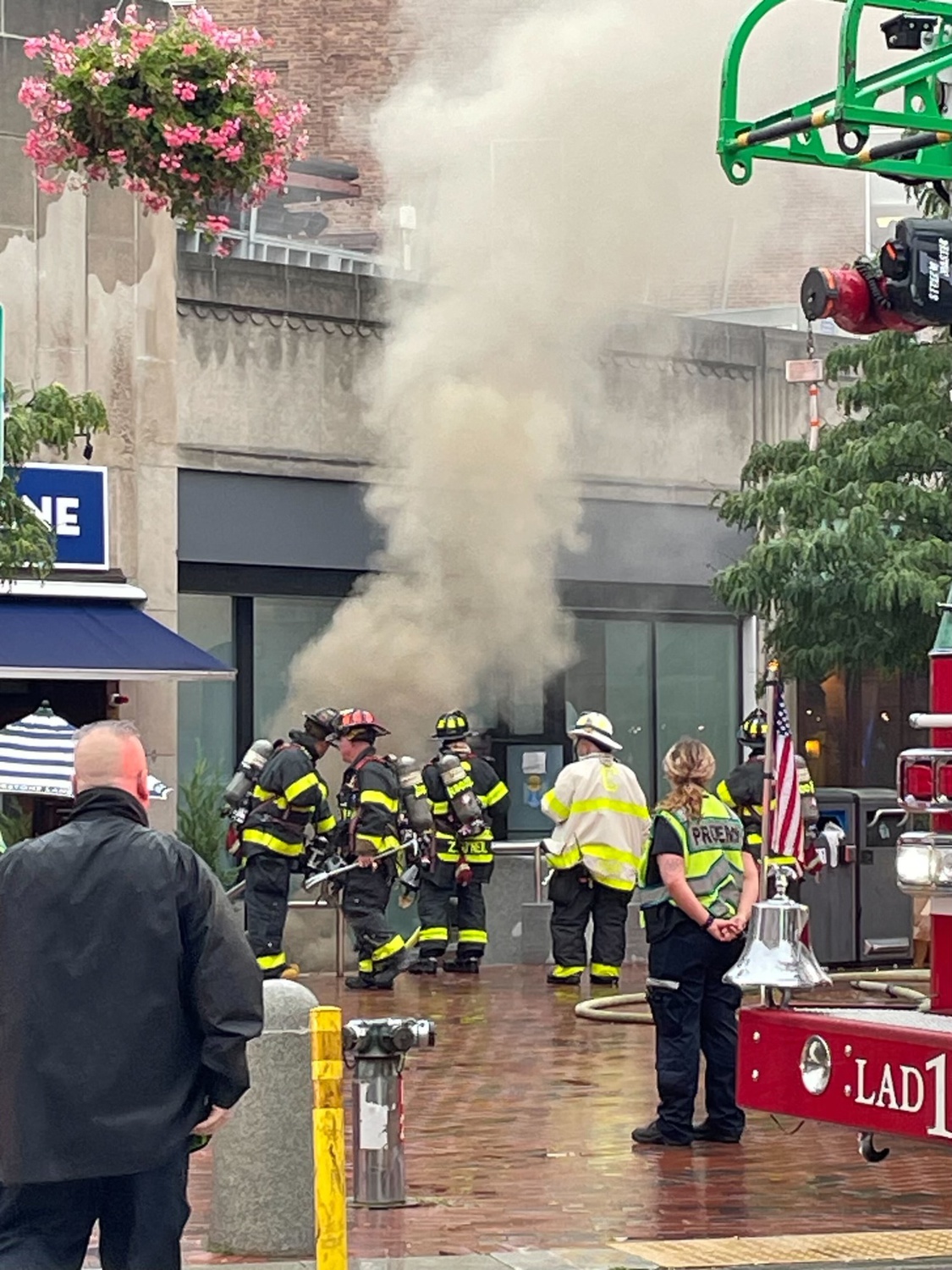
Firefighters observe smoke rising from the scene of a manhole explosion at 27 Brattle Street on Wednesday morning. By Courtesy of Maggie Dawson
It was not immediately clear what had caused the blasts, though manhole explosions are typically the result of an electrical spark igniting the gas within the manhole. Manholes, which allow access to a city’s sewer system, can contain high levels of hazardous gases like hydrogen sulfide, methane, and carbon monoxide.
Cahill said it would be impossible to identify what led to the blast until someone can inspect the inside of the manhole, which could take a few days.
“Until you can get your eyes on it, there’s really no way to determine the cause,” Cahill said. He added that he believed the cause was related to the electric equipment within the manhole.
Christopher R. McKinnon, a spokesperson for residential energy company Eversource, wrote in an email that the company was responding to a damaged “underground secondary cable.”
“We responded just before nine o’clock this morning for reports of a manhole fire and immediately coordinated with Cambridge police and fire on scene to isolate the damaged cable and make the area safe,” McKinnon wrote.
Cahill said the fire department detected carbon monoxide levels above 100 parts per million in several businesses in the area, leading to their evacuations. He did not give a timeline for the business’ reopening. He added that despite the fire department’s efforts to lower carbon monoxide levels, they still registered in excess of 25 parts per million in some businesses at the time of the press conference, around 3:30 p.m.
A CPD alert shortly before 10:00 a.m. reported a “major traffic disruption” due to the blasts and warned residents to avoid the area.
“As a result of this explosion and subsequent response, Harvard Square is closed to vehicle traffic, and pedestrian traffic is restricted. If at all possible, people should avoid traveling through Harvard Square until further notice,” the alert read.
As of 11:37 a.m., at least five fire trucks remained outside the site of the explosion, though the flames had been extinguished, according to a firefighter on the scene. Firefighters were packing up their hoses and preparing to do a final check for carbon monoxide. The traffic closure appeared to be limited to the Brattle Square area by that point, with vehicular traffic resuming on JFK Street shortly before noon.
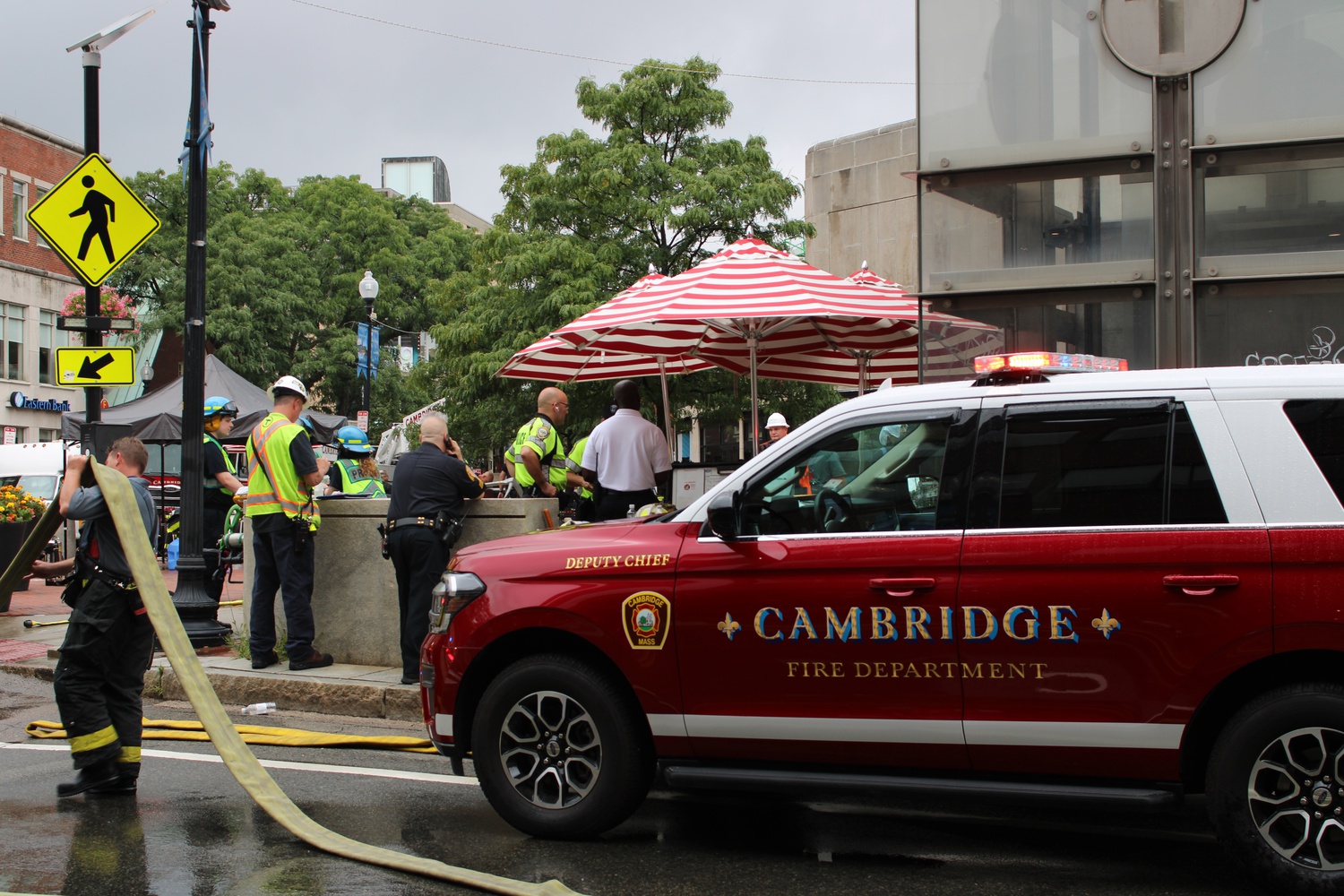
At least five fire trucks remained in the vicinity of the blasts shortly before noon, though by then, the flames had been extinguished. By Ian C. Hua
Luis Garcia, a front-of-house manager at Felipe’s Taqueria on Brattle Street, described watching a growing cloud of smoke and active flames outside the restaurant.
“We were all inside the building, and all of a sudden, we hear a little explosion, and the lights went on and off,” Garcia said.
“Then we came out of the building and we saw a lot of smoke next door,” he added, referring to the area outside Bluestone Lane.
Cahill also said during the press conference that Eversource was working to turn off power to a third manhole that had been actively emitting carbon monoxide. He said that because manholes are connected underground, it is typical to see multiple failures at one time.
McKinnon, the Eversource spokesperson, confirmed later Wednesday evening that power had been cut off for the third manhole.
Harvard Square Business Association Executive Director Denise Jillson wrote in an email to HSBA members that Eversource’s ongoing work would leave some businesses in the area without power.
McKinnon wrote that Eversource brought a generator to the area on Wednesday afternoon for customers who had lost power, and that customers would be hooked up to the generator once Eversource receives approval from the City of Cambridge.
The manhole explosion and emergency response did not significantly impact student move-in Wednesday — the designated move-in date for freshmen not participating in pre-orientation programs and the first scheduled date for upperclassmen to arrive on campus. The explosions did not appear to cut off access to the Yard or upperclassman Houses by the late morning.
